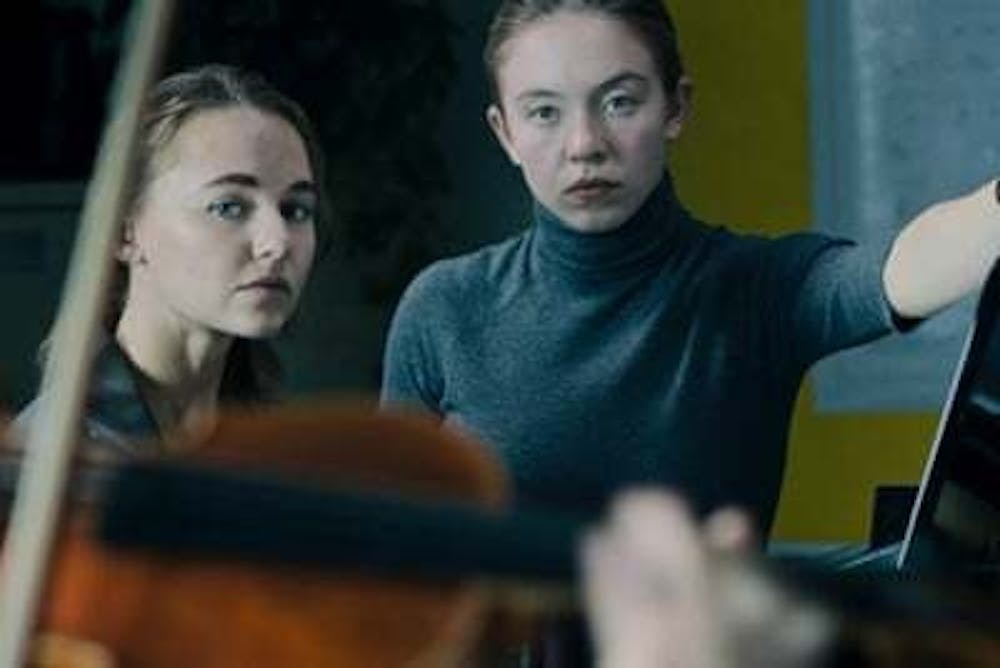With movie theaters closed for the foreseeable future and costumes replaced with masks of a very different kind, Halloween is shaping up to be a solitary affair. Instead of the typical glut of crowd-pleasing cinema slashers and direct-to-video thrillers primed for party-viewing, streaming services have been stocking their virtual shelves with new releases to keep audiences in sufficiently spooky spirits during October. Blumhouse Studios has, of course, been leading the charge as the industry’s most well-known and rousingly successful horror production company, flipping low-budget fixer-uppers into box office smashes.
With box offices quickly becoming a thing of the past, Blumhouse has doubled down on its efforts to produce streaming content for Halloween. Their anthology film series “Into The Dark” for Hulu hasn’t made many waves in the nearly two years of its existence, but that hasn’t discouraged Blumhouse from trying again, this time with their Amazon Prime endeavor “Welcome to the Blumhouse.”
The welcome wagon began earlier in the month with “Black Box” and “The Lie,” followed by “Evil Eye” and “Nocturne”, a baffling double-feature that showcases both the benefits and drawbacks of bringing low-budget — and sometimes half-baked — ideas to the screen. “Evil Eye” has attracted the most buzz of the four entries with its entirely South Asian cast and Priyanka Chopra attached as an executive producer, but unfortunately, this soapy slip of a film is a Blumhouse effort made of straw instead of sticks or bricks.
The movie begins promisingly enough with devout Indian mother Usha urging her more modern daughter Pallavi to marry, her motivations seemingly steeped in tradition. However, when Pallavi finally meets a nice, handsome man, Usha becomes convinced that her beau is the reincarnation of Usha’s former abusive boyfriend. This simple premise is stretched to an agonizing ninety minutes, filled with so many interminable scenes of Pallavi video-calling her mother that one has to wonder if the entire budget went to paying cell phone bills.
The first-half of the film treats its audience as if they’re suffering from a collective case of anterograde amnesia, establishing and re-establishing the central conflict between Pallavi and Usha with such excruciating repetition that one wonders if the film’s twist will involve some kind of ill-fated time loop. Every scene lumbers forward at the exact same monotonous pace, sedated by a flat, lifeless style lifted straight from Ikea catalogues and a slogging shrug of a score.
Frustratingly, “Evil Eye” is not a terrible movie. Adapted from an audio play released, interestingly enough, on Amazon-owned platform Audible, the story’s themes of abusive cycles and inherited trauma between mothers and daughters are genuinely affecting. There is a kernel of heartbreaking tragedy to the film, occasionally dug out of the numbing haze of dull dialogue by Sarita Choudhury as Usha; her performance is compellingly layered enough to make one wish she’d been given better material. As wonderful as it is to see a film with South Asian talent in front of and behind the camera, “Evil Eye” isn’t strong enough to shoulder its complex theme subject matter or entertaining enough to play in the background of a socially-distanced Halloween get-together.
“Nocturne,” on the other hand, manages to tackle its own difficult topic with only a few minor stumbles. This story concerns twin sisters and teenage piano prodigies Vivian and Juliet as they finish up their final semester at their prestigious performing arts high school. Vivian is popular, adored and on her way to Julliard, while Juliet feels stuck in her sister’s shadow. This all begins to change when Juliet discovers the notebook of a recently deceased student and realizes that she is running out of time to prove herself as a musical equal to her sister, prompting her to take a more cutthroat approach to her craft.
Though derivative enough in nature that it plays more like a medley than an original composition, “Nocturne” contends with a surprisingly underutilized theme — goodness instead of greatness. Juliet has been playing the piano since she was five-years-old, has trained for years and sacrificed a traditional childhood, but she is not quite good enough to sustain a career or even get into Juilliard, a realization that she understandably struggles with in the twilight of her adolescence. She has devoted her entire life to music, only to have nothing to show for it. Sydney Sweeney conveys Juliet’s mounting anguish brilliantly, always eliciting empathy from the audience even when her actions become less and less forgivable. Her quiet rage powers the film up until its final notes, culminating in a beautiful crescendo of action and tragedy sustained by Sweeney’s performance.
“Nocturne” may rely heavily on conventional horror movie tropes — including the stigmatization of anti-anxiety medication as “crazy pills” and one particularly dopey instance of low-budget CGI — and its story beats are so telegraphed that they appear as a series of drawings in the first act, but its nuanced exploration of artistic perfection and the deteriorating relationship between Juliet and Vivian make it feel incredibly refreshing. Suspenseful, stylish and strikingly melancholy, “Nocturne” is a welcome reprieve from the cymbal-crash clumsiness of its fellow release that might make audiences decide to pay the Blumhouse another visit next Halloween.
Get The Chronicle straight to your inbox
Signup for our weekly newsletter. Cancel at any time.

